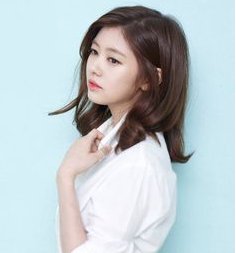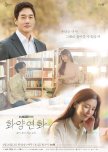Slow-burning, often-overlooked drama of 2020
When My Love Blooms also went under my radar with its melodramatic tone and emphasis on flashbacks. However, WMLB is not so overtly melodramatic, especially in comparison to other kdramas. And, the way flashbacks are incorporated into the story is ambitious and novel. The major weakness of WMLB is that it takes too long to show its main merit and charm.
By committing to longer flashbacks, the drama tells two intertwined stories that make it challenging to buy-in to either. In the beginning, it feels as though we are watching two sets of characters, and it takes the better half of the series to believe that they are the same “people”. This drama needs a longer runway to fully capture its audience, so do not judge on the first 2 or 4 episodes.
Story:
With the concurrent telling of past and present, When My Love Bloom’s plot is surprisingly tight. Flashbacks are not shown just to explain a specific present event, rather they are given their own fully fleshed out story. Splitting time between flashbacks and present does take away from the development of the main plotline, especially because it is hard to believe, at first, that the past and present characters are really one another.
Acting:
Lee Bo Young and Yoo Ji Tae are what I first noticed from their respective 2013 and 2014 hits. I Hear Your Voice and Healer are both considered kdrama classics, and seeing the two leads in 2020 is a treat. No more needs to be said.
Their past counterparts Jeon So Nee and Park Jin Young also deserve praise. Within their storyline, their chemistry and performance are strong. The only minor criticism is that the two pairs could have better aligned their mannerisms because it may have helped bridge the disconnect between them. Still, I prefer the way the past and present are shown in WMLB over the usual where one pair of actors pretends to be 20 in one scene and 40 in another.
Music:
Music is a key point throughout the drama, from the use of 90’s music to the Female Lead’s piano background. The blend of oldies and classical with the more familiar sounds of kdrama ballad/OST is appreciated. But like the story, When My Love Bloom’s novel approach does not quite break away from the typical kdrama mold.
Rewatch Value:
Even though the drama exceeds expectations, it is hard to promise a rewatch. I hesitate to call it slow paced. It is more that there are two stories that could each be a standalone show. By the time the two “stories” fully connect, When My Love Bloom is already at its end. The finale’s lasting impression is that WMLB fails to stand out even with its novel storytelling and directing.
By committing to longer flashbacks, the drama tells two intertwined stories that make it challenging to buy-in to either. In the beginning, it feels as though we are watching two sets of characters, and it takes the better half of the series to believe that they are the same “people”. This drama needs a longer runway to fully capture its audience, so do not judge on the first 2 or 4 episodes.
Story:
With the concurrent telling of past and present, When My Love Bloom’s plot is surprisingly tight. Flashbacks are not shown just to explain a specific present event, rather they are given their own fully fleshed out story. Splitting time between flashbacks and present does take away from the development of the main plotline, especially because it is hard to believe, at first, that the past and present characters are really one another.
Acting:
Lee Bo Young and Yoo Ji Tae are what I first noticed from their respective 2013 and 2014 hits. I Hear Your Voice and Healer are both considered kdrama classics, and seeing the two leads in 2020 is a treat. No more needs to be said.
Their past counterparts Jeon So Nee and Park Jin Young also deserve praise. Within their storyline, their chemistry and performance are strong. The only minor criticism is that the two pairs could have better aligned their mannerisms because it may have helped bridge the disconnect between them. Still, I prefer the way the past and present are shown in WMLB over the usual where one pair of actors pretends to be 20 in one scene and 40 in another.
Music:
Music is a key point throughout the drama, from the use of 90’s music to the Female Lead’s piano background. The blend of oldies and classical with the more familiar sounds of kdrama ballad/OST is appreciated. But like the story, When My Love Bloom’s novel approach does not quite break away from the typical kdrama mold.
Rewatch Value:
Even though the drama exceeds expectations, it is hard to promise a rewatch. I hesitate to call it slow paced. It is more that there are two stories that could each be a standalone show. By the time the two “stories” fully connect, When My Love Bloom is already at its end. The finale’s lasting impression is that WMLB fails to stand out even with its novel storytelling and directing.
Esta resenha foi útil para você?























